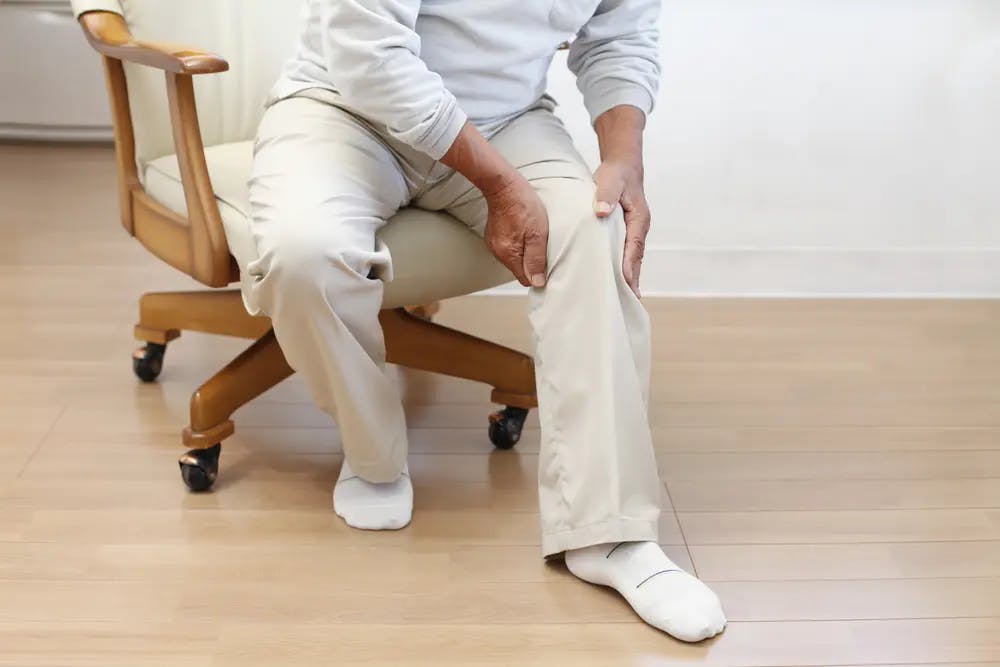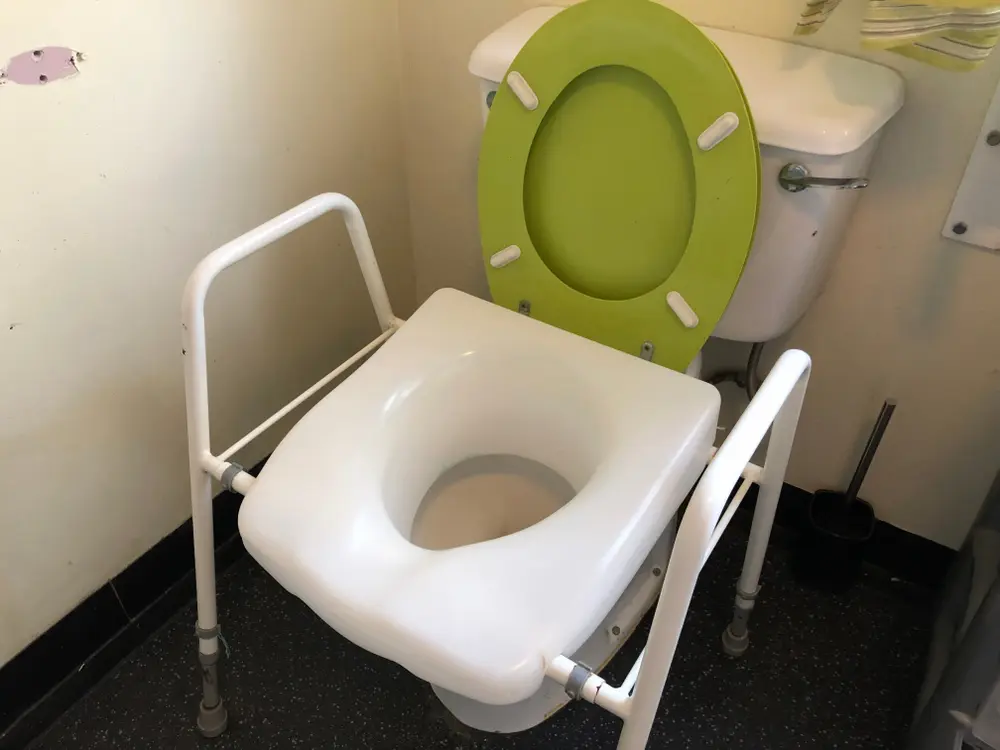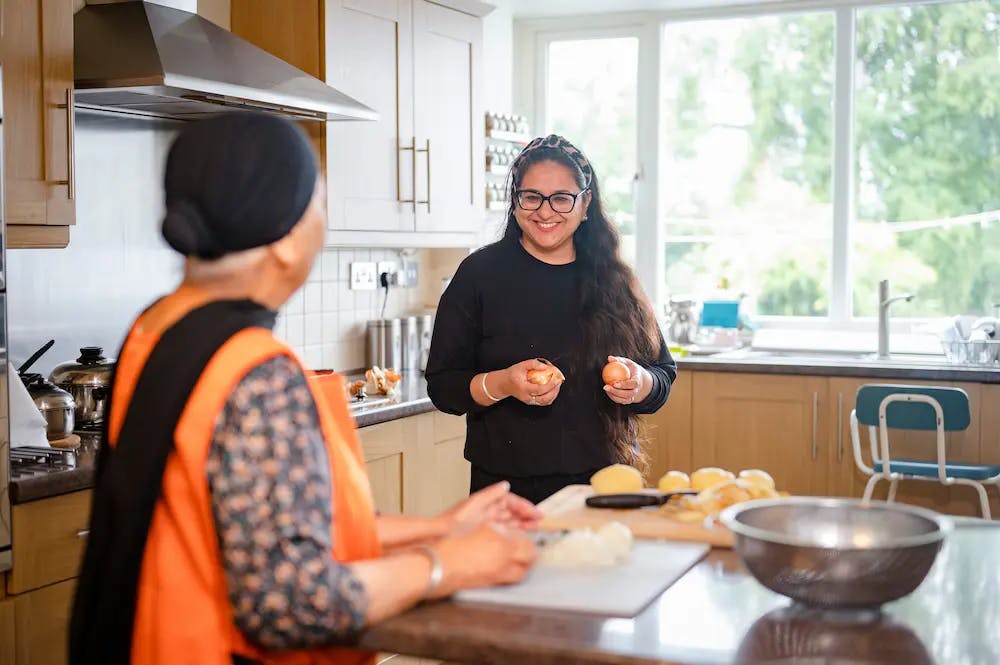Knee Replacement Recovery Time For Older Adults | Tips, Timelines and Home Care Support

Estimated Reading Time: 8 minutes
Here, we’ve explained how long the knee replacement recovery time is for older adults, along with the recovery timeline and how to support somebody who has had a knee replacement. The average recovery time is 6-12 weeks.
People often need extra support after a knee operation, so we’ve also explained how to find home care near you.
Get support with personal care and household tasks
Browse the best home care in your area.
In this article:
- Knee replacement recovery time for older adults
- The recovery timeline after having a knee replacement
- Supporting someone who has had a knee replacement
- Taking care of your new knee joint
- Knee replacement carers and care agencies
- Find home care near you
Knee Replacement Recovery Time For Older Adults
The total recovery time for older adults after knee replacement surgery is around 6-12 weeks, but this could end up being slightly longer. The total recovery time varies from person to person, depending on age and overall health. Healthier and younger people will usually recover quicker.
This recovery time includes a brief hospital stay (often less than a week and sometimes only a couple of days) and then recovering in your own home. Professional home care may be needed during this period. A lack of mobility means that help with household tasks like cleaning, doing laundry and preparing meals can be really beneficial.
For the first 2-3 weeks, you’ll likely need some mobility support to get around. By weeks 4-6, your mobility should significantly improve as the swelling in your knee reduces and your range of motion increases.
You should have complete movement in your knee and be free of any pain by weeks 7-12.
The Recovery Timeline After Having a Knee Replacement
1. In the hospital
Once you’ve had knee replacement surgery, you may be given medication to relieve pain and prevent infection. You’ll then spend a short time in the hospital. How long this is will depend on how quickly you’re able to recover. Older adults often spend slightly longer in the hospital after surgery.
When in the hospital, you’ll be encouraged to begin moving as soon as you’re able to, as it’s important to get your strength back and your knee moving again. You may spend time with a physical therapist during this period.
You’ll usually be able to leave the hospital when your mobility reaches a certain point, such as when you’re able to get in and out of bed or from one place to another without any assistance from others. You may still need a mobility aid such as crutches or a walker. Your pain will have also started to decrease and your wound will be healing well.
2. Care at home
When returning home, you’ll likely speak with a physiotherapist or occupational therapist about managing daily activities (professional home care support can help you with this) and gentle home exercises. These exercises are important for proper recovery.
Home care support you may need could include help with things like:
- Help with preparing and cooking meals
- Keeping your home clean
- Personal care (such as support with using the toilet, washing, bathing and getting dressed and undressed)
- Helping you move from one place to another
- Transport to and from appointments
- Shopping on your behalf
- Specialist nursing procedures, if required
Your home may require modifications to help keep you safe, such as grab rails in the shower and bath, a raised toilet seat and handrails along the stairs. A disabled facilities grant can help pay for some of these larger costs.
Your condition should gradually improve over the next several weeks (weeks 2-12) and return to normal. The range of movement in your knee will slowly increase, meaning you’ll become more mobile, allowing you to resume any light activity you did before. Try some moderate walking to start with. Don’t go too quickly, or you could risk reinjuring your new knee (if it isn’t given proper time to heal).

3. Follow-up care
You’ll have regular follow-up appointments for around 12 months after knee replacement surgery to ensure everything is okay.
During these 12 months, it’s essential to be physically active if possible, as this will lead to the best possible recovery.
You should speak to a medical professional such as your GP if there’s still pain or discomfort 12 months after the surgery.
We can help you find the best home carer for you or your loved one’s care needs, including domiciliary (hourly) and live-in carers. Request a free list of home care agencies, and our care experts will match you with suitable carers with availability in your local area.
Supporting Someone Who Has Had a Knee Replacement
If your loved one has had a knee replacement, some extra support while they recover at home will go a long way. You can help them with:
- Household chores like washing, cleaning, preparing meals and running errands as needed
- Using icepacks to reduce swelling
- Providing transport to and from medical appointments
- Providing emotional support and warm words of encouragement
- Watching out for any changes to their physical or mental condition (you may want to contact a medical professional if you notice any worrying sudden changes)
A professional home carer can also assist with these tasks.
Taking Care Of Your New Knee Joint
Here are some tips for looking after your new knee joint:
Try to avoid sitting in the same position for more than 45-60 minutes at a time. Keeping your knee moving will stop it from seizing up
Avoid putting underwear or trousers on while standing up. Instead, sit on the edge of your bed (or a different item of furniture) to make yourself more stable getting dressed
Use a non-slip mat when showering. This will make you much less likely to fall
Use a raised toilet seat if necessary. A raised toilet seat will keep your knees below your hips when using the toilet
Hold onto the bannister when going up and down the stairs. You should step first with your leg that didn’t have surgery when going up the stairs, and with your leg that did have surgery when going down the stairs
Wear shoes with non-skid soles when walking
Avoid high-intensity sports and activities

Knee Replacement Carers and Care Agencies
There are several home care agencies that provide specialist support for people who have had a knee replacement. We’re partnered with these providers.
Helping Hands
Helping Hands have nurse-led teams who will provide you or your loved one with the correct level of support.
Helping Hands have care agencies throughout the UK, including in the following cities:
The Good Care Group
The Good Care Group offer highly personalised support delivered by trained carers on a one-to-one basis for the most effective possible rehabilitation. Rehabilitation programmes are created on an individual basis to match your recovery needs. The Good Care Group operate in England and Scotland.
Bluebird Care
Bluebird Care’s knee replacement services allow care-seekers to focus on rest and recovery, whether this is providing personal care, assistance with daily tasks or managing medications.
Bluebird Care operates throughout the UK, including in Bristol and Bath, Cheshire East, East Suffolk and South Leeds.
Find Home Care Near You Through Lottie
We’ve partnered with the UK’s best home care agencies, and you can use our website to find home care near you. You can also request a free list of home care agencies, and our care experts will find you home care providers with availability nearby.
Each of our home care listings includes what types of home care are offered, funding types accepted, whether care is available on a fixed-term or ongoing basis, and the specific support provided through care at home.
Personal care at home
Older adults often require support with their personal care while recovering after a knee replacement, often due to a lack of mobility. The home care agencies we’re partnered with can help you:
- Get in and out of bed
- Get dressed and undressed
- Use the toilet
- Wash and bathe
- Eat and drink
- Take oral medication
- Look after your continence care
Household support
When recovering after a knee replacement operation, you may need support with household chores, also due to your limited mobility. Some of the tasks our partner home care agencies can support with include:
- Administration and finances
- Gardening
- Housekeeping
- Laundry
- Looking after your pets
- Meal preparation and cooking
- Shopping and running any other errands
- Transportation to and from appointments, along with anywhere else you need to go
Lottie matches care seekers with the best home carers for their care needs. You can request a free list of home care agencies, where we’ll find you home care providers with availability in your local area.
Frequently Asked Questions
Is 75 too old for a knee replacement?
There isn’t a maximum age at which you can have a knee replacement. This procedure has been given to people who are well into their 90s.
While age can play a role in deciding if a knee replacement is appropriate, the main consideration is whether they’re healthy enough to withstand the demands of the procedure and the recovery process afterwards.
How long is care needed after a knee replacement?
How long care is needed after a knee replacement varies from person to person, with older adults often needing care for longer. It usually takes someone at least three months to become mobile enough to return to daily tasks and other activities, with some level of care being needed during this period. Meanwhile, full recovery can take as long as a year.
How long are you bedridden after a knee replacement?
After a knee replacement, people usually spend a short time in the hospital. This often lasts two to five days, but older adults may spend slightly longer. During this period, people are encouraged to start moving again as soon as possible.



